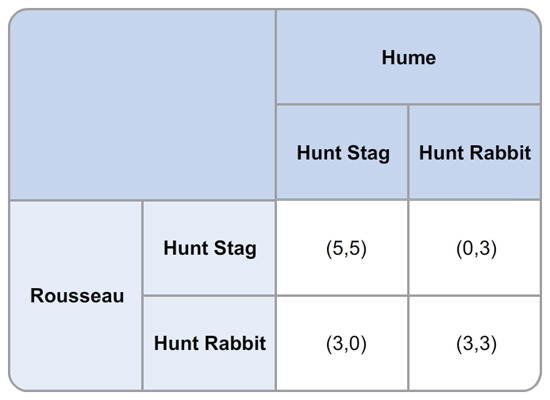Chapter 16. Chapter 16
Step 1
Question
Prisoner’s dilemmas are common in real life, but not all real-life games are as dismal as the prisoner’s dilemma. One game, known as “stag hunt,” describes situations where cooperation is possible but fragile.The philosopher Jean-Jacques Rousseau described the game. He said that a lot of social situations are like going hunting with a friend: If you both agree to hunt for a stag, then you each have to hold your positions near each end of a valley so that the animal can’t escape. If you both hold to your positions, then you will almost surely get your kill. If one hunter wanders off to hunt the easier-to-find rabbit, however, then the stag will almost surely get away. Rabbit hunting works fine as a solo sport, but to catch a stag, you need a team effort.
This is the usual way of writing the game:

If Rousseau is quite sure that Hume will hunt stag, he will .

Step 2
Question

If Rousseau is quite sure that Hume will hunt rabbit, Rousseau will .
Step 3
Question
There are two Nash equilibria in this game. In the first one, Rousseau while Hume . In the second one, Rousseau while Hume .
Step 4
Question
Of these two equilibria, economists call the “payoff-dominant equilibrium” and the “risk-dominant equilibrium”. The is the biggest risk that might push someone to choose the “risk-dominant equilibrium”.